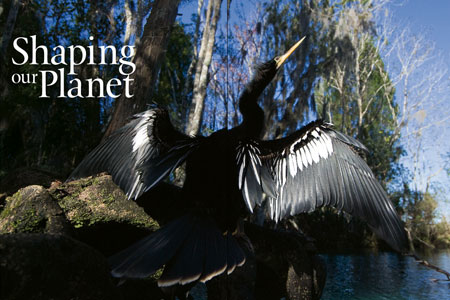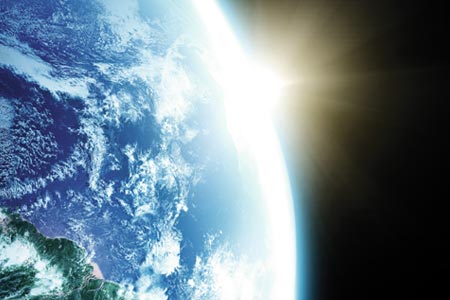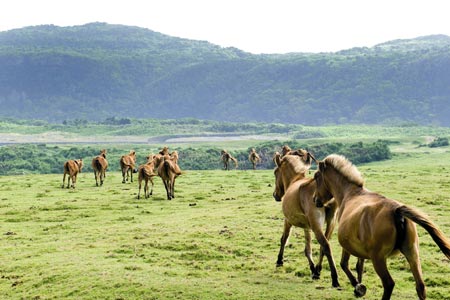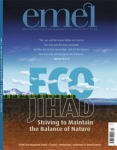
Shaping our Planet
Issue 85 October 2011
“Consider the sky and its wondrous make, and the Earth and its entire expanse,” recounts the Qur’an. Indeed, the Qur’an gives great prominence to the natural world around us. Ali Khimji and Ayman Khwaja look at how these landscapes are changing under the impact of man-made climate change.
“Are they not aware that it is God whose limitless glory all creatures that are in the heavens and on earth extol, even the birds as they spread out their wings? Each of them knows indeed how to pray unto Him and to glorify Him; and God has full knowledge of all that they do.” [67:19]

All over the world, birds are being affected by climate change. The significant effects range from migration and distribution, to behaviour and reproduction, and this is the result of changes in temperature, precipitation and extreme weather. The placement of birds’ habitats are also moving due to rises in the sea level and changes in vegetation and land use.
With warming spring temperatures, birds are migrating earlier and earlier each spring. However, the temperatures along the migratory path are never consistent, so many of the birds do not have access to their usual food sources of insects, and many will be unable to complete the journey. In Europe, some birds have stopped migrating altogether.
Furthermore, the natural habitats of birds in developed countries are usually found in protected areas. But changing climates are forcing birds to move their ranges, and scientists estimate that the average bird species in Europe will be moving its distribution 550km northeast, moving them far away from the present conservation sites.
“And He it is who has made the sea subservient to His laws, so that you might eat fresh meat from it, and take from it gems which you may wear.” [16:14]

Although the oceans serve as a ‘basin’ for carbon dioxide in the atmosphere, increased levels of CO2 from industrialisation have lead to ocean acidification, which can severely detriment the marine food chain. Since the start of the industrial revolution, acidity levels in the sea have gone up by 30%, and the effects of increased levels of carbon dioxide are greater in colder waters.
Scientists have also concluded that the rising sea temperatures will have an irreversible effect on the world’s coral reefs through bleaching, which is where the coral loses its colour and becomes white. In addition, one in four fish depend on the coral reef as their natural habitat.
Many fish and other marine life are adapted to a particular area of the sea, which has the ideal temperature for them. However, with the sea temperature changing, fish populations are moving towards the Polar Regions.
To read more of this feature, as well as gain access to exclusive videos, plus behind the scenes footage and more interactive content, log on to http://digital.emel.com to get your digital issue today.
Bookmark this |
|
Add to DIGG |
|
Add to del.icio.us |
|
Stumble this |
|
Share on Facebook |
|
Share this |
|
Send to a Friend |
|
Link to this |
|
Printer Friendly |
|
Print in plain text |
|


Comments
0 Comments